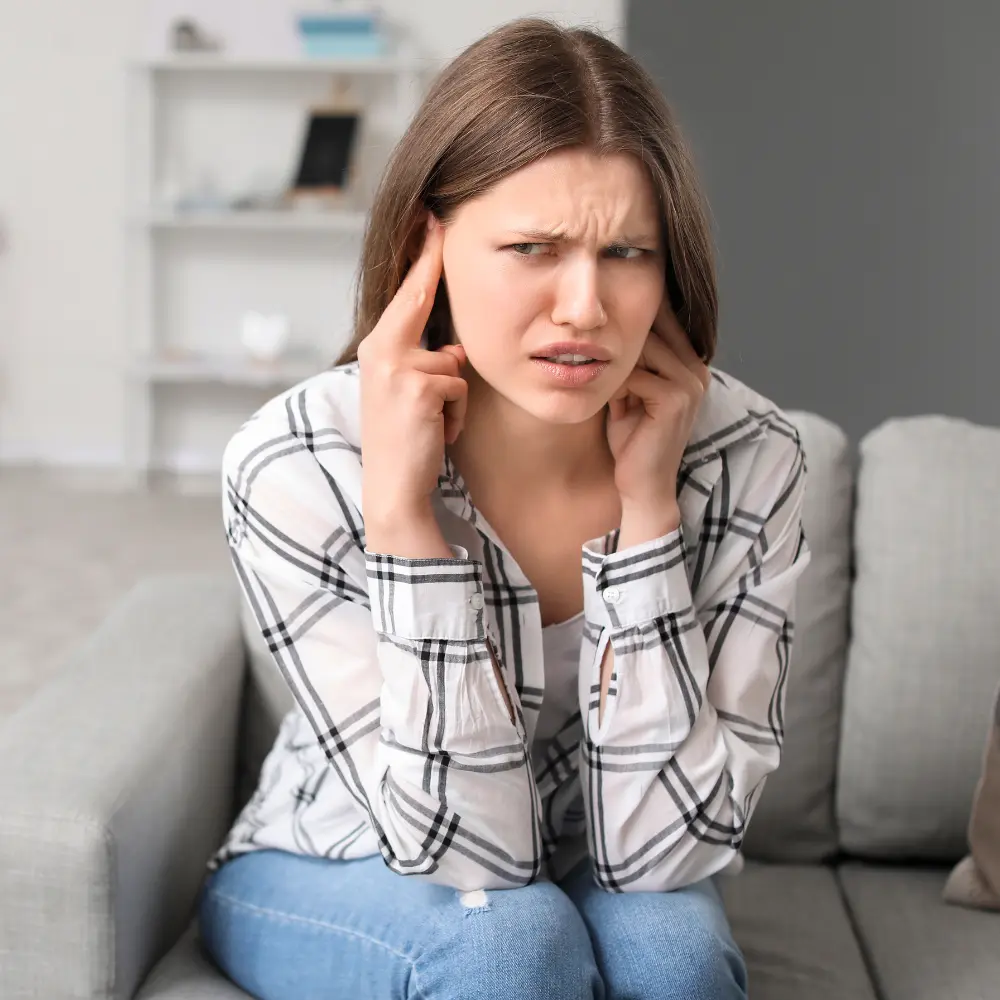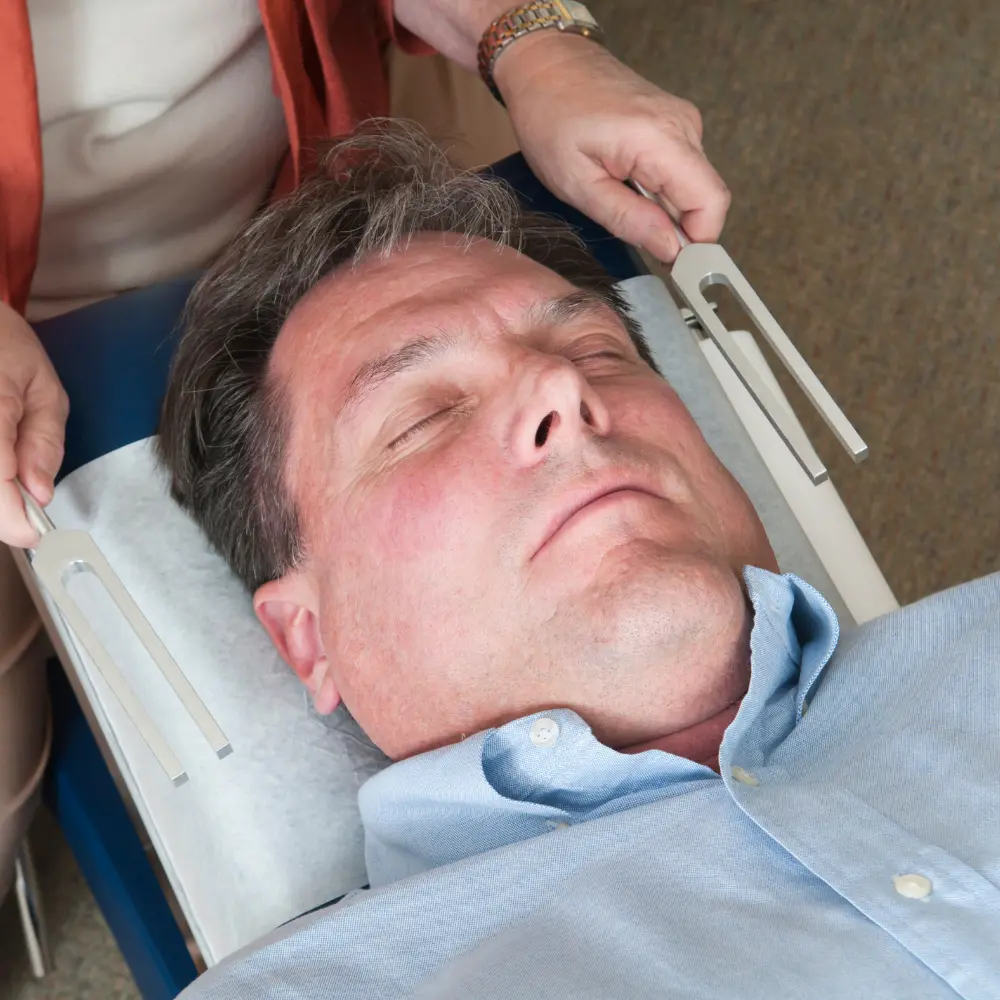The pervasive and distressing condition of tinnitus, marked by a relentless ringing, buzzing, or hissing sensation in the ears, has plagued countless individuals globally, inciting considerable curiosity regarding possible triggers and treatments for this irksome affliction. A frequently encountered concern pertains to the impact of caffeine on tinnitus, with particular emphasis placed on whether coffee might be the malefactor behind these vexing symptoms. In this comprehensive guide, we embark on an investigation of the query: “Does coffee cause tinnitus?” by delving into the intricate correlation between caffeine and tinnitus, providing valuable perspective on the scientific evidence, potential effects, and available remedies for those contending with this widespread affliction.
Grasping the intricate interplay between caffeine ingestion and tinnitus is of paramount importance, as it can furnish critical revelations regarding the management and mitigation of symptoms. By scrutinizing the underlying scientific principles, evaluating the advantages and disadvantages of caffeine intake, and presenting alternative courses of action and supplementary treatments, our objective is to arm readers with the knowledge and resources necessary to arrive at informed conclusions concerning their caffeine-related behaviors and enhance their auditory well-being. Therefore, let us set forth on this odyssey and unravel the veracity behind caffeine and tinnitus.
Caffeine and Tinnitus: Key Takeaway
- Caffeine’s impact on tinnitus is complex and individualized. Though caffeine is not a direct cause, it may worsen symptoms for some.
- Monitor caffeine and tinnitus to determine any correlation. Reducing caffeine intake may help alleviate symptoms.
- Lifestyle changes, such as consistent sleep, physical activity, and mindfulness, can manage tinnitus.
- Complementary remedies, like stress management, sound therapy, and nutrition, can aid in managing symptoms with caffeine reduction.
- Professional help is necessary if tinnitus is severely impacting the quality of life or mental health. An audiologist or healthcare provider can provide tailored treatment options.
The Science Behind Caffeine and Tinnitus
To comprehend the correlation between caffeine and tinnitus, it is necessary to undertake an in-depth exploration of the scientific evidence available. This includes analyzing the interaction between caffeine and the auditory system, the prevalence of tinnitus among caffeine consumers, and specific studies conducted on this subject. Let’s delve further into these facets.

How Caffeine Affects the Auditory System
Caffeine, a natural stimulant present in coffee, tea, and several other beverages, exerts its influence on the central nervous system by heightening alertness and reducing fatigue. Nevertheless, its effect on the auditory system is far more intricate.
Caffeine can instigate vasoconstriction, which refers to the constriction or narrowing of blood vessels, and an elevation in blood pressure. (1) This can potentially lead to decreased blood flow to the cochlea, the spiral-shaped component of the inner ear that converts sound vibrations into nerve impulses. A reduction in blood flow to the cochlea can adversely affect its function, resulting in tinnitus symptoms. Additionally, caffeine can escalate stress levels and disrupt sleep patterns, both of which can exacerbate tinnitus.
Tinnitus Prevalence in Caffeine Consumers
Tinnitus, a prevalent auditory affliction, is widely observed among a substantial proportion of the populace. However, identifying the exact incidence rate of tinnitus in caffeine consumers is a challenging task, given the multifaceted nature of this disorder. The severity and recurrence of symptoms tend to vary considerably from person to person. While some individuals might encounter only mild tinnitus after ingesting caffeine, others may report a substantial exacerbation of symptoms.
It is crucial to acknowledge that the relationship between caffeine consumption and tinnitus does not follow a straightforward, linear pattern. Some caffeine consumers may not experience any tinnitus symptoms at all, and paradoxically, others may even observe a positive effect on their tinnitus due to caffeine intake. This underscores the imperative need for further systematic investigations aimed at comprehending the role of individual differences and other confounding factors that potentially modulate the intricate association between caffeine and tinnitus.
Studies Investigating Caffeine’s Impact on Tinnitus
Studies exploring the link between caffeine and tinnitus have generated conflicting results. Some studies have found no significant association between caffeine consumption and tinnitus, while others have suggested that moderate caffeine intake might even reduce the risk of developing tinnitus. A study published in the American Journal of Medicine reported that women who consumed higher quantities of caffeine were less susceptible to tinnitus than those with lower caffeine intake. (2) The authors speculated that caffeine’s vasoconstrictive properties might have a safeguarding impact on the auditory system.
Conversely, some anecdotal evidence and case studies propose that the withdrawal of caffeine could alleviate tinnitus symptoms in certain individuals. As the current research on this topic remains equivocal, it is imperative to consider individual experiences and seek advice from a healthcare professional before making any significant alterations to caffeine consumption.
Caffeine Consumption and Tinnitus Management
Tinnitus management often entails modifying one’s lifestyle, including regulating caffeine intake. However, as we ponder the query, “Does coffee cause tinnitus?” it is paramount to take into account individual experiences, ways to curtail caffeine consumption if deemed necessary, and potential alternatives for caffeine enthusiasts. Let us delve deeper into these aspects.
Reducing Caffeine Intake: When and How

In some cases, mitigating tinnitus symptoms can be achieved by limiting caffeine intake. If you suspect that caffeine might be exacerbating your tinnitus, it may be prudent to gradually decrease your consumption. Abruptly ceasing caffeine can result in withdrawal symptoms, including migraines, irritability, and exhaustion. Hence, it is advisable to taper off gradually. Consider initiating the process by reducing your coffee, tea, or other caffeinated beverages by a single serving per day and continue to decrease your intake over time.
Personalizing Your Caffeine and Tinnitus Strategy
Given the considerable inter-individual variability in caffeine responses among tinnitus patients, it is imperative to customize your caffeine and tinnitus management approach. A helpful strategy is to document your caffeine consumption and tinnitus symptoms using a diary or mobile app, taking note of any patterns or correlations between the two. This allows you to assess whether modifying your caffeine intake has a favorable impact on your tinnitus symptoms.
Moreover, consulting with a healthcare practitioner or an audiologist to discuss your concerns about caffeine and tinnitus is advisable. They can assess your specific situation, offer personalized recommendations, and help you navigate any necessary adjustments to your caffeine intake.
Alternative Options for Caffeine Lovers

If reducing caffeine intake proves effective for managing your tinnitus but you still crave the taste and ritual of your daily coffee, numerous alternatives are available. Decaffeinated coffee and tea can offer a comparable flavor profile without caffeine content. Herbal teas, such as chamomile, peppermint, and rooibos, are naturally caffeine-free and provide a wide array of flavors to suit your taste buds.
For those who rely on caffeine for an energy boost, incorporating other energy-enhancing habits into your daily routine is beneficial. Engaging in regular physical activity, consuming balanced meals, and establishing consistent sleep schedules can boost energy levels without relying on caffeine. By exploring alternative options, you can still enjoy the comforting experience of a warm beverage without exacerbating your tinnitus symptoms.
Complementary Remedies for Tinnitus Relief
While managing caffeine consumption is one avenue to address tinnitus, it is crucial to explore other remedies that can aid in mitigating symptoms. Complementary approaches, including sound therapy, nutritional interventions, and stress management techniques, can offer further support in your quest for tinnitus relief.
Stress Management Techniques
Stress can exacerbate tinnitus symptoms, emphasizing the need to incorporate stress management techniques into your daily routine. Mindfulness meditation, deep breathing exercises, and progressive muscle relaxation are practical techniques that can reduce stress and foster relaxation. Moreover, regular physical activity, such as walking, yoga, or swimming, can serve as an effective stress reliever and improve overall well-being.
Consider seeking support from a licensed therapist or counselor with expertise in stress management or cognitive-behavioral therapy (CBT). These professionals can provide personalized guidance and strategies to help you manage stress and cope with tinnitus more efficiently.
Sound Therapy and Tinnitus Retraining Therapy
Sound therapy involves using external noise to mask or reduce the perception of tinnitus. This can be achieved through white noise machines, specialized hearing aids, or even smartphone apps that generate soothing background sounds. Sound therapy can provide temporary relief from tinnitus symptoms and improve the overall quality of life. (3)

Tinnitus retraining therapy (TRT) is a more comprehensive approach that combines sound therapy with counseling and education. The goal of TRT is to help individuals habituate to their tinnitus, reducing the emotional and psychological impact of the condition. While TRT requires commitment and consistency, it has been shown to provide long-term benefits for many tinnitus sufferers. (4)
Nutritional Supplements and Diet Modifications
Specific nutritional supplements and dietary changes may aid in ameliorating tinnitus symptoms for some individuals. Nutritional supplements such as magnesium, zinc, ginkgo biloba, and B vitamins have been proposed to support auditory health and potentially alleviate tinnitus symptoms. Nonetheless, it is crucial to consult with your healthcare provider before initiating any new supplements as they may interact with medications or result in adverse effects.

Dietary adjustments, such as minimizing sodium intake, may also assist in managing tinnitus. Excessive sodium consumption can contribute to increased blood pressure, which may exacerbate tinnitus symptoms. Strive to consume a balanced diet that is abundant in fruits, vegetables, whole grains, lean proteins, and healthy fats, as proper nutrition can promote overall well-being and conceivably ameliorate tinnitus symptoms.
Lifestyle Changes to Improve Tinnitus Symptoms
Tinnitus is a chronic auditory condition that can significantly impact an individual’s quality of life. However, adopting certain lifestyle changes can help mitigate its effects and contribute to overall well-being. In this regard, establishing a consistent sleep routine, and limiting exposure to loud noises are all potential interventions that can support auditory health and improve the management of tinnitus symptoms.
Establishing a Sleep Routine
Amidst the range of lifestyle changes that may be implemented to mitigate tinnitus symptoms, the establishment of a consistent sleep routine holds particular significance. A healthy sleep pattern has been linked to numerous health benefits and can also play a crucial role in the management of tinnitus symptoms.

Poor sleep habits can exacerbate tinnitus and make it more difficult to cope with during waking hours. To create a healthy sleep routine, individuals should strive to maintain consistent sleep and wake time, even on weekends. By establishing this routine, the body’s internal clock can adapt, and the likelihood of disturbances to the sleep cycle can be reduced.
In addition to setting a regular sleep schedule, individuals may also consider incorporating a relaxing bedtime routine. This may include engaging in calming activities such as reading, taking a warm bath, or practicing deep breathing exercises. By prioritizing relaxation and calmness in the hour leading up to bedtime, individuals may be able to promote a more restful and rejuvenating sleep experience.
Moreover, it is important to create a sleep environment that is comfortable and conducive to rest. This may involve minimizing external stimuli such as noise, adjusting the temperature to a comfortable level, and using blackout curtains or a sleep mask if needed. Additionally, individuals may also consider using white noise machines to mask the tinnitus sounds and create a more tranquil environment conducive to sleep.
Limiting Exposure to Loud Noises

Exposure to loud noises can cause or worsen tinnitus, making it essential to protect your hearing whenever possible. If your occupation or hobbies expose you to loud noises, wear earplugs or earmuffs to reduce the risk of noise-induced hearing damage. When listening to music or watching movies, keep the volume at a moderate level to protect your ears from potential harm.
Seeking Professional Help for Tinnitus

While lifestyle changes and self-help strategies can provide relief for many individuals with tinnitus, there are instances where professional help is necessary. Knowing when to consult an audiologist, evaluating potential underlying causes, and exploring advanced treatment options can significantly improve your tinnitus management and overall quality of life.
When to Consult an Audiologist
It is essential to consult an audiologist or healthcare professional if you experience any of the following:
- Sudden onset of tinnitus without an apparent cause
- Tinnitus that is accompanied by dizziness or balance problems
- Tinnitus that occurs in only one ear or is accompanied by hearing loss
- Tinnitus that significantly impacts your quality of life or mental health
An audiologist can provide a comprehensive evaluation, help determine the cause of your tinnitus, and recommend appropriate treatment options.
Evaluating Potential Underlying Causes
Tinnitus can sometimes be a symptom of an underlying medical condition or a side effect of certain medications. When seeking professional help, it’s crucial to evaluate potential underlying causes. An audiologist or healthcare provider will typically conduct a physical examination, review your medical history, and perform various tests, such as hearing tests or imaging studies, to identify the cause of your tinnitus.

Addressing the underlying cause, if identified, may help alleviate your tinnitus symptoms. For example, if your tinnitus is related to impacted earwax, removing the earwax may provide relief. If a specific medication is contributing to your tinnitus, your healthcare provider may recommend an alternative treatment.
Exploring Advanced Treatment Options
In some cases, advanced treatment options may be necessary to manage tinnitus effectively. Your audiologist or healthcare provider may recommend one of the following treatment options based on your individual needs:
- Hearing aids: If you have hearing loss in addition to tinnitus, hearing aids can help improve your hearing and may also provide tinnitus relief by amplifying background sounds, making the tinnitus less noticeable. (5)
- Tinnitus masking devices: These devices are similar to hearing aids but are specifically designed to generate a constant, low-level white noise that helps mask the tinnitus sounds.
- Cochlear implants: If you have severe hearing loss and tinnitus, cochlear implants may be an option. These devices bypass the damaged parts of the inner ear and directly stimulate the auditory nerve, potentially reducing tinnitus symptoms.
- Medications: In some cases, medications such as antidepressants or anti-anxiety drugs may be prescribed to help manage the emotional and psychological impact of tinnitus.
It’s important to work closely with your healthcare provider to determine the most appropriate treatment plan for your specific needs and to monitor your progress throughout the treatment process.
Conclusion
In summary, the effects of caffeine on tinnitus are individualized and complex. While caffeine does not directly cause tinnitus, it can worsen symptoms in some individuals. By monitoring caffeine intake and symptoms, exploring lifestyle adjustments, and seeking professional help, tinnitus sufferers can take a proactive approach to managing their condition. Incorporating complementary remedies such as stress management techniques and sound therapy can provide relief, but it’s essential to work with a healthcare provider or audiologist for personalized recommendations. Every person’s experience with tinnitus is unique, and finding effective solutions requires individualized attention and care.
FAQ
How much caffeine is safe for someone with tinnitus?
There is no specific recommended amount of caffeine for individuals with tinnitus, and it's crucial to monitor your own symptoms and caffeine intake to determine what amount is suitable for you.
Are there any scientific studies on the link between caffeine and tinnitus?
Limited research has been done on the relationship between caffeine and tinnitus, with some studies suggesting a correlation between caffeine and exacerbated symptoms.
What are some alternatives to caffeine that won't trigger tinnitus?
Caffeine-free beverages, decaf coffee, and herbal teas are alternatives that may not trigger tinnitus. Regular exercise, balanced meals, and consistent sleep schedules can also provide an energy boost.
How can I manage my tinnitus symptoms if I can't give up caffeine?
Monitoring caffeine consumption and exploring complementary remedies such as stress management techniques and sound therapy may help manage tinnitus symptoms. Consult with a healthcare provider or audiologist for personalized recommendations.














